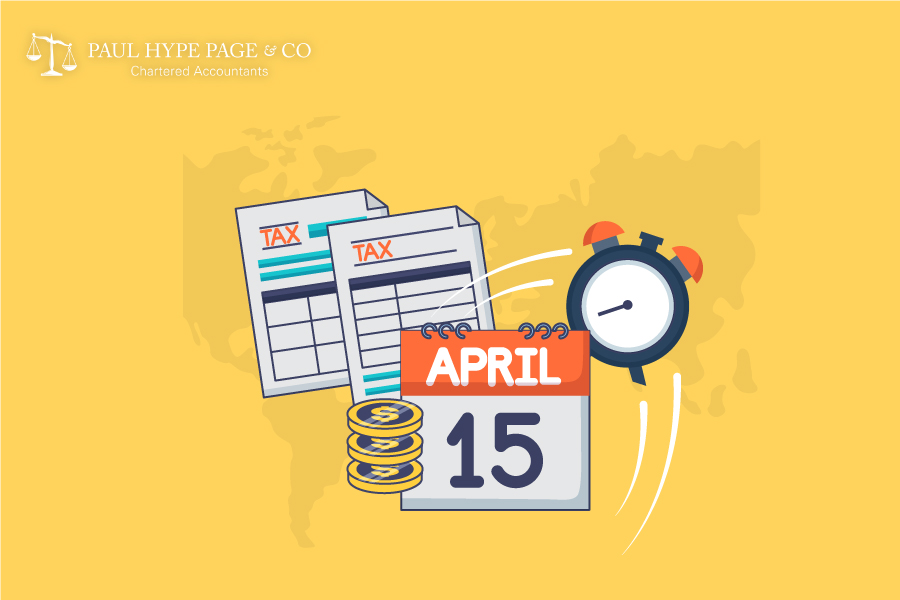Outline
What is GST?
Goods and Services Tax (GST) is a tax on domestic consumption, applied to most goods or services sold or consumed in Singapore. It is a flat tax system, meaning the amount of GST is applied at a uniform rate to all taxable transactions. The gst system ensures a fairer and more effective taxation structure by distributing tax liability across all levels of consumption, preventing excessive reliance on income tax alone.
The Singapore government decided to introduce GST as a way to maintain fiscal stability while allowing for income tax cuts, ensuring that the country’s revenue stream remains sustainable despite economic fluctuations. GST was introduced in 1994, initially at 3%, as part of a long-term strategy to diversify government revenue and reduce reliance on marginal personal income tax rates.
By taxing consumption rather than income, GST is collected progressively as individuals spend, rather than taxing wealth accumulation. This system helps keep personal and corporate tax rates competitive, allowing Singapore to maintain its position as an attractive business hub while ensuring the government has the necessary funds to invest in public infrastructure, education, healthcare services, and social programs.
Latest GST Updates for 2025
The GST rate in Singapore has continued to evolve, reaching 9% as of January 1, 2024. This increase marks a significant shift in Singapore’s taxation approach, requiring businesses and consumers to adapt to the higher GST rate.
Key 2025 GST Changes
- GST rate in Singapore: 9% (Effective January 1, 2024)
- Businesses must register for GST if their annual taxable turnover exceeds S$1 million
- GST is collected on all goods imported into Singapore, including imported digital services, expanding taxation to cover a broader digital economy
GST Rate History
- 1994 – Rate was 3% when GST was implemented
- 2003 – Increased to 4%
- 2004 – Further increase to 5%
- 1 July 2007 – Adjusted to 7%
- Delayed to 2023 – GST increased to 8%
- 2023 till Present – Current GST rate increased to 9%
This gradual increase, alongside targeted financial relief measures, highlights the government’s commitment to ensuring GST remains manageable for Singaporean households while maintaining long-term economic growth.
How Budget 2025 May Affect GST
The Minister for Finance is expected to deliver the Singapore Budget 2025 on 19 February, outlining potential fiscal policies and adjustments in response to recent economic trends. Based on previous government measures and Singapore Budget 2018, which laid the foundation for GST hikes, several GST-related changes may be introduced.
Predictions for Budget 2025
-
Enhancements to the Permanent GST Voucher Scheme
- The Singapore government may subsidise more lower- and middle-income Singaporean households through increased cash payouts, utility rebates, and expanded conservancy charge rebates.
- The permanent GST voucher scheme is designed to help Singaporeans offset the GST paid on everyday expenses, reducing the tax burden on essential consumption.
-
Targeted Relief for Basic Necessities
- Healthcare services, education fees, and basic necessities could see additional GST exemptions or lower tax rates through a multi-tiered GST approach.
- More essential goods or services may qualify for zero-rated or exempt status, making them more affordable for Singaporeans.
-
Adjustments to the GST Offset Package
- Since the higher GST rate (from 8% to 9%) was accompanied by an offset package, it is likely the government will expand this initiative.
- The package may include additional rebates for goods imported into Singapore and services supplied that impact Singaporean households the most.
-
Business Impact and Compliance Adjustments
- Businesses dealing with dutiable goods or high-value goods imported into Singapore could see increased compliance requirements under the Customs Act.
- Companies may also be required to pay additional GST on digital payment tokens and investment precious metals.
-
Changes in Effective Tax Rate for High Earners
- The government may introduce adjustments to the top marginal personal income tax rate to balance the higher GST rate with income tax system reforms.
- This could include property tax hikes for the higher-income bracket while maintaining income tax cuts for middle-class Singaporeans.
With GST being a regressive tax, policymakers are expected to introduce progressive support measures to ensure the impact remains manageable for Singaporean households.
GST Law in Singapore
Goods and Services Tax (GST) in Singapore is a value-added tax (VAT) levied on the supply of goods and services and the import of goods into Singapore. The tax is governed by the Goods and Services Tax Act (GST Act) and is administered by the Inland Revenue Authority of Singapore (IRAS).
GST is a consumption tax applied at every stage of the supply chain, with the final cost being borne by the consumer. Businesses registered for GST are required to charge and collect GST from customers and remit it to IRAS.
The current GST rate is 9% as of January 1, 2024. GST is applicable to most goods and services in Singapore, except for specific zero-rated supplies (such as exports and international services) and exempt supplies (such as financial services and the sale or lease of residential properties).
Businesses that meet the registration criteria must register for GST, charge GST on taxable supplies, file GST returns, and pay the net GST amount to IRAS. Businesses may also voluntarily register for GST even if their taxable turnover is below the mandatory threshold, provided they meet the eligibility conditions.
Companies importing goods into Singapore must pay GST on imports before customs clearance. Additionally, since January 1, 2020, GST has applied to imported digital services from overseas vendors under the Overseas Vendor Registration (OVR) scheme. This means foreign businesses providing digital services to customers in Singapore must register for GST if their annual revenue from Singapore exceeds the specified threshold.
Singapore’s GST system allows businesses to claim GST input tax credits on purchases made for business purposes, provided the necessary conditions are met. The GST filing period is typically on a quarterly basis, and businesses must submit their returns and payments within one month after the end of each GST accounting period.
Consequences of Non-Compliance with GST Laws
Non-compliance with GST laws in Singapore can result in severe penalties, including fines, interest charges, and legal consequences. IRAS enforces strict compliance measures to ensure businesses meet their GST obligations.
Failure to register for GST when required can lead to penalties of up to S$10,000 and an additional 10% of the unpaid GST. Businesses that fail to file GST returns or make GST payments on time face fines of S$5,000 per return and additional late payment interest charges.
If a business underreports or incorrectly files GST, IRAS may impose a penalty of 200% of the underreported tax amount in addition to a fine of up to S$5,000. Fraudulent claims, deliberate non-compliance, or tax evasion can result in even harsher penalties, including prosecution and imprisonment.
Businesses that voluntarily disclose GST filing errors before being audited by IRAS may qualify for a penalty reduction under IRAS’ Voluntary Disclosure Program. However, deliberate non-compliance or repeated offenses can lead to stricter enforcement actions.
To avoid penalties, businesses should ensure accurate GST reporting, timely filing, and proper record-keeping. Using automated accounting software or engaging professional tax consultants can help businesses stay compliant with GST regulations and minimize the risk of errors.
Why Does Singapore Have GST?
- Provides a stable revenue source while maintaining a lower GST rate for basic necessities
- Reduces reliance on top marginal personal income tax, ensuring the income tax system remains competitive
- Ensures supplies of goods and services contribute to national revenue fairly and sustainably
Who Administers GST in Singapore?
- IRAS (Inland Revenue Authority of Singapore) is responsible for GST payable collection and enforcement
- Comptroller of GST ensures compliance under the Customs Act, overseeing all taxation policies related to GST that a GST-registered business must follow
How GST Works: Input Tax vs. Output Tax
- Input GST is the GST a business pays on purchases
- Output tax collected is the GST charged to customers on sales
- Businesses must charge any GST on taxable supplies of goods and services, ensuring compliance with national tax laws
Types of GST in Singapore
- Standard-Rated Supplies – 9% GST applies
- Zero-Rated Supplies – No GST, but international services are zero-rated
- Exempt Supplies – Includes financial services, investment assets, and specific goods or services
- Out-of-Scope Supplies – Includes goods imported and traded abroad
GST on Imported Goods and Digital Services
- GST will be imposed on imported digital services, ensuring taxation fairness in the growing e-commerce sector
- Goods imported into Singapore are now subject to GST paid at customs, reducing tax loopholes
Who Needs to Register for GST in Singapore?
- Businesses with annual taxable turnover exceeding S$1 million must register for GST
- Services supplied that involve high-value transactions must ensure compliance with updated Singaporean regulations
GST Refunds for Tourists in Singapore
- Tourists can claim up to $370 per year or $910 per year, depending on their spending on goods brought into Singapore
- GST credits may be offered to tourists purchasing investment precious metals or high-value retail items
Final Thoughts on GST in Singapore
- The Singapore Budget 2018 laid the foundation for one percentage point each time increases in GST
- The higher GST rate is accompanied by an offset package to minimize impact on Singaporean households
- The effective GST system ensures a fairer and more effective taxation approach, balancing the needs of businesses, Singaporeans, and economic stability
The Singapore economy is adapting to changing fiscal needs, and Budget 2025 may introduce new measures to balance tax on domestic consumption, business sustainability, and economic resilience.
Share This Story, Choose Your Platform!
Related Business Articles





